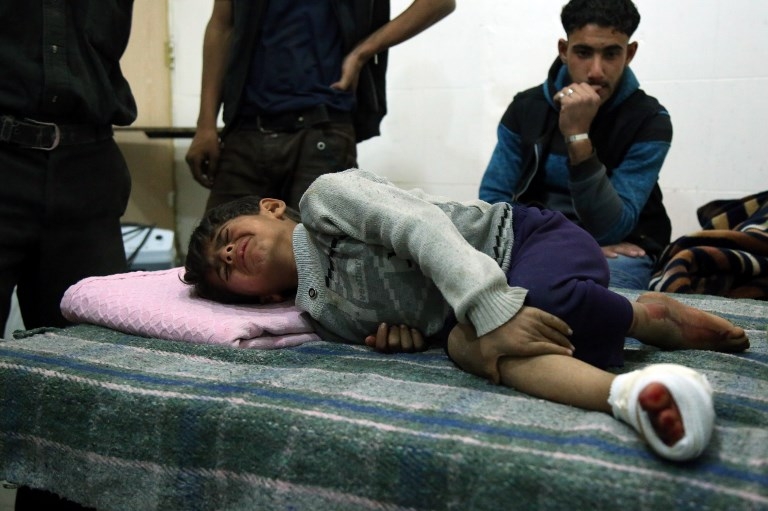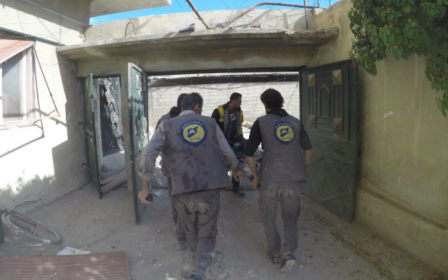Influx of casualties in Eastern Ghouta amid reports of gas attack

Doctors and relief organisations working in Syria's Eastern Ghouta, near Damascus, reported an influx of patients wounded by intensifying attacks that targeted towns in the besieged area on Saturday.
A medical centre in Eastern Ghouta said that two patients appeared to have been targeted by a chemical gas attack.
The reports were corroborated by the Syrian American Medical Society's Turkey Advocacy manager Mohamed Katoub, who told MEE that at least 37 people were being treated in Eastern Ghouta for injuries from an unidentified gas attack.
Shelling by the Syrian government on Eastern Ghouta on Friday killed at least 19 civilians, among them six children, a monitor said.
The deaths came amid an escalating cycle of tit-for-tat attacks between the government and rebels holding the enclave on the Syrian capital's eastern outskirts.
According to the Syrian Observatory for Human Rights, 52 civilians have been killed since Tuesday, most of them in Eastern Ghouta, which has been besieged since 2013 and where humanitarian conditions are dire.
Thirteen people, including five children and three emergency workers, were killed in shelling and air strikes in Douma, the Eastern Ghouta area's main town, Observatory chief Rami Abdel Rahman told AFP.
Elsewhere in Eastern Ghouta, another six people were killed in air strikes, the monitor said.
The Syrian government is now in the midst of a large-scale offensive in Eastern Ghouta, the DC-based Syria Institute told Middle East Eye.
In the past four days, the government has unleashed 222 air strikes – including cluster bombs and chlorine attacks - in the area, with half of them in Harasta, said Valerie Szybala, the executive director of the Syria Institute.
In retaliation for the latest Ghouta shelling, rebels fired rockets into Damascus on Friday, killing three civilians, a source told AFP.
Six were killed the previous day, including Syria's national karate coach Fadel Radi, who died of his wounds after being hit by shrapnel as he left his Damascus sports club, the state-run SANA news agency reported.
Meanwhile, on Friday Russia vetoed a Japanese-drafted UN Security Council resolution to extend by one month an international inquiry into who is to blame for chemical weapons attacks in Syria, just a day after Moscow blocked a US push to renew the investigation.
Syrian ally Russia has now cast 11 vetoes on possible Security Council actions on Syria since the country's civil war began in 2011. The Japanese draft received 12 votes in favour, while China abstained and Bolivia joined Russia in voting no.
Addressing the council, US Ambassador Nikki Haley assailed the veto as a "deep blow," saying "Russia has killed the investigative mechanism which has overwhelming support of this council."
"By eliminating our ability to identify the attackers, Russia has undermined our ability to deter future attacks."
More than 330,000 people are estimated to have been killed and millions displaced in the Syrian war, which began in 2011.
Middle East Eye propose une couverture et une analyse indépendantes et incomparables du Moyen-Orient, de l’Afrique du Nord et d’autres régions du monde. Pour en savoir plus sur la reprise de ce contenu et les frais qui s’appliquent, veuillez remplir ce formulaire [en anglais]. Pour en savoir plus sur MEE, cliquez ici [en anglais].




